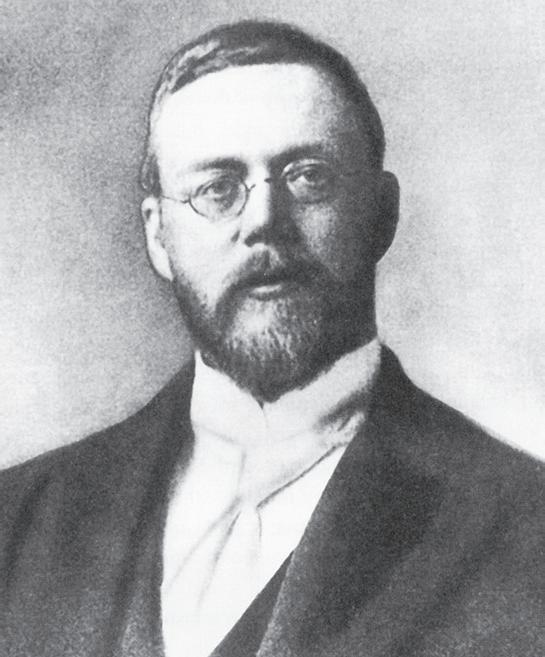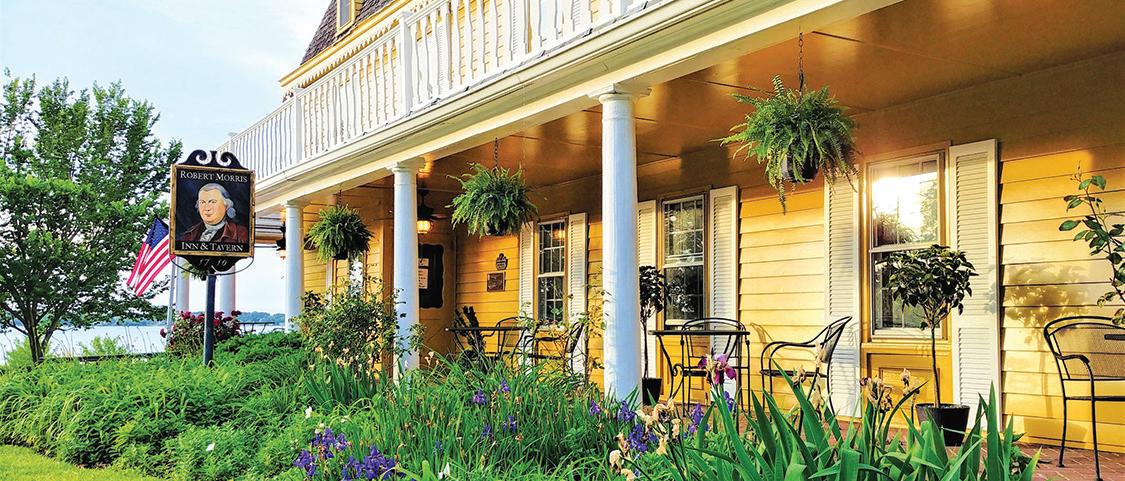
7 minute read
Oxford Map and History
Oxford is one of the oldest towns in Maryland. Although already settled for perOxford haps 20 years, Oxford The Strand Tilghman St. Market St. High St. East St. Division St. Oxford Road Benoni Ave. Pleasant St. Robes Hbr. Ct. South Morris Street Bachelor Point Road Pier St. E. Pier St. Bonfield Ave.Third StreetJack’s Pt. Rd.First Street 2nd St. W. Division St. Caroline St.West St. Tred Avon Ave. Myrtle Ave. Sinclair St. Richardson St.South Street Town Creek Rd. Wilson St. Stewart Ave. Norton St. Mill St. Jefferson St. Banks St.Factory St.Morris St. Oxford Community Center Oxford Park Bellevue Ferry T r e d A v o n R i v e r Town Creek Oxford To Easton 333 8 1 2 3 7 9 10 11 13 15 16 17 18 19 4 56 12 14 © John Norton marks the year 1683 as its official founding, for in that year Oxford was first named by the Maryland General Assembly as a seaport and was laid out as a town. In 1694, Oxford and a new town called Anne Arundel (now Annapolis) were selected the only ports of entry for the entire Maryland province. Until the American Revolution, Oxford enjoyed prominence as an international shipping center surrounded by wealthy tobacco plantations. Today, Oxford is a charming tree-lined and waterbound village with a population of just over 700 and is still important in boat building and yachting. It has a protected harbor for watermen who harvest oysters, crabs, clams and fish, and for sailors from all over the Bay.
For a walking tour and more history visit https://tidewatertimes. com/travel-tourism/oxford-maryland/.
Wye Mill
one of the rare early colonials to own a merchant fl eet.
Meanwhile, Philemon had barely come of age when Edward I empowered him to administer his extensive Maryland interests when his father relocated to London, where a three-way power struggle raged for decades between Puritans, and royal competition between Anglicans and Catholics.
It was quite impossible from across the sea to recognize who was gaining the upper hand back in the mother country, or to anticipate what repercussions might befall colonials as English rule alternated among the factions.
While Edward Lloyd I was evidently a staunch Puritan, his new daughter-in-law, Henrietta, was a lifelong Catholic. Philemon adopted the Church of England, even dictating in his will that their children be educated as Anglicans. Not to doubt anyone’s sincerity, but the Lloyds were unusually tolerant, with a foot in each belligerent camp.
202 Morris St., Oxford 410-226-0010 30 Years in Business We Know Books!

BOOKSELLERS Grab a book to share with your Partner in Crime!


Friday - Sunday 10-3, Monday 10-2 *Listen Fri. mornings on WCEI 96.7fm *20% off your book clubs’ books *Books of all kinds & Gifts for Book Lovers *Special orders & Book Gift Baskets *Online ordering & e-newsletter @ www. mysterlovescompany.com
English titles of nobility were forbidden under Maryland’s charter, but the Lloyd family’s prominence cried out for something distinctive. Philemon attained the rank of colonel in the militia, a rank that attached to subsequent Edwards as a hereditary honorific. (You didn’t have to be from Kentucky to be an honorary colonel.) Following one General Lloyd, Colonel Edward Lloyds continued until Edward Lloyd VII (1825-1907), an actual colonel in service during the War with Mexico.
Philemon’s wife came to be esteemed as Madam Henrietta, the colonial equivalent to Lady Henrietta Maria Lloyd. Her legendary royal association and personal qualities were preserved by numerous generations of daughters named in her honor, the descendants of her twelve children.
Philemon died at thirty-nine in 1685. Henrietta lived a dozen years more as a widow. When she died at fifty, her son Richard Bennett had a tomb erected in the family cemetery at Wye House, inscribed in part:
She who now takes her rest within this tomb Had Rachells face and Leas fruitful womb . . .
Meanwhile, back on the western shore, from colonial days under Captain Neale, Cobb Island remained relatively intact until the twentieth century. Its modern history dates from 1889, when a wealthy Philadelphian named George Vickers bought the entire island for $5,000 with money he won on an election bet. Vickers built a fine Queen Anne-style summer home, the island’s first known permanent house. When Mr. Vickers’s luck turned, he lost his Pennsylvania holdings and retreated full-time to the island.
From Vickers’s house on December 23, 1900, Reginald Aubrey Fessenden initiated an historic radio transmission: Fessenden radioed his natural voice via electromagnetic waves across the length of
Fresh Muffins Daily Homemade Soups Sandwiches & Salads Frozen Meats · Groceries Breads · Cold Cuts Beer · Wine · Liquor 410-226-0015 203 S. Morris St., Oxford
Reginald A. Fessenden Cobb Island. A year later, in 1901, Guglielmo Marconi was still transmitting mere dots and dashes, yet the Italian aristocrat ultimately won fame, wealth and the Nobel Prize for Physics as the inventor of the radio.
Only two houses stood on Cobb Island in 1900, one mile apart, on either end of the island. Fessenden had a 50-foot “wireless” mast erected near each house and voiced, “Hello. One, two, three, four. Is it snowing where you are? If it is, telegraph back and let me know.” His assistant keyed back in Morse code, “Yes.”
Fessenden had located his experiment on Cobb Island to protect its secrecy, and he certainly suc-

Open Friday dinner, Saturday breakfast, lunch & dinner and Sunday brunch & dinner Deliciousness ToGo and delivered Friday through Sunday inclusive Ordering from our main menu and our new “Winter Comfort ToGo” THE ROBERT MORRIS INN 1710 OXFORD MD 314 NORTH MORRIS STREET ٠ OXFORD ٠ 410 226 5111 WWW.ROBERTMORRISINN.COM 106

ceeded. While preparing for the vocal test, he could have composed a more quotable message, maybe a bit of the Bible. Samuel Morse’s “What hath God wrought?” came down through the ages, though only keyed in code, not voiced. As Fessenden’s name has been forgotten, so has his message.
What Fessenden possessed in genius, he lacked in equal measure as a promoter. Though receiving numerous patents in his lifetime, a shortage of funds often kept him from creative work. In contrast, through his Irish mother, Marconi was related to the Jameson Irish Whiskey fortune and enjoyed numerous connections in both Britain and Italy. A year after Fessenden’s voice transmission, Marconi received great acclaim and the promise of future funding for wirelessly transmitting the letter “s” in Morse code (dot dot dot).
On the other hand, from Massachusetts on Christmas Eve 1906, Fessenden produced a complete Christmas revue, including an Ediphone recording of Handel’s “Largo,” his own fine violin and vocal rendition of “O Holy Night” and a reading of seasonal Bible verses. His secretary and Mrs. Fessenden were to have read the verses but became the first victims seized by mic-fright. When they both froze, the inventor stepped up to do the Bible reading. In conclusion, he sent season’s greetings to anyone
TIMOTHY B. KEARNS

TBKEARNSDESIGN.COM · 410.226.5100

Tidewater Residential Designs since 1989
receiving the transmission and asked that they respond. An answer came in Morse code from an operator aboard a United Fruit Company ship off the Atlantic coast.
The island historical marker may be off in one detail, saying Fessenden “for the fi rst time sent and received intelligible speech by electromagnetic waves.” Regardless, the name of Reginald Aubrey Fessenden has not been forgotten on Cobb Island.

* * *
I don’t remember any educational tours setting out from Aunt Min’s cottage. Mainly I remember

Patti's Petals Florist, Gardens and Gifts
Show your Valentine how much you care!
Whatever the occasion, let one of our talented designers create a beautiful, eye-catching fresh or silk oral arrangement that's customized just for you, delivered locally, or around the world! pattispetalsflorist.com
410-479-4445 219 Market St., Denton



my excitement on rising Sunday morning to fi nd the trap sprung and a small paw in the handhold. I ran for Mr. Cavey to come lift the Budweiser case so I could hold my rabbit. When he carefully lifted one end of the case, we found the neighbor’s cat.
Mr. Cavey also caught a lot of guff for baiting a rabbit trap with rockfi sh heads. I wasn’t allowed to keep Puss.
Forty-some years ago, A.M. Foley swapped the Washington, D.C., business scene for a writing life on Elliott Island, Maryland. Tidewater Times has kindly published portions of one upcoming work, Chesapeake Bay Island Hopping, along with other regional musings. Foley’s published works are described at www.HollandIslandBook.com.













